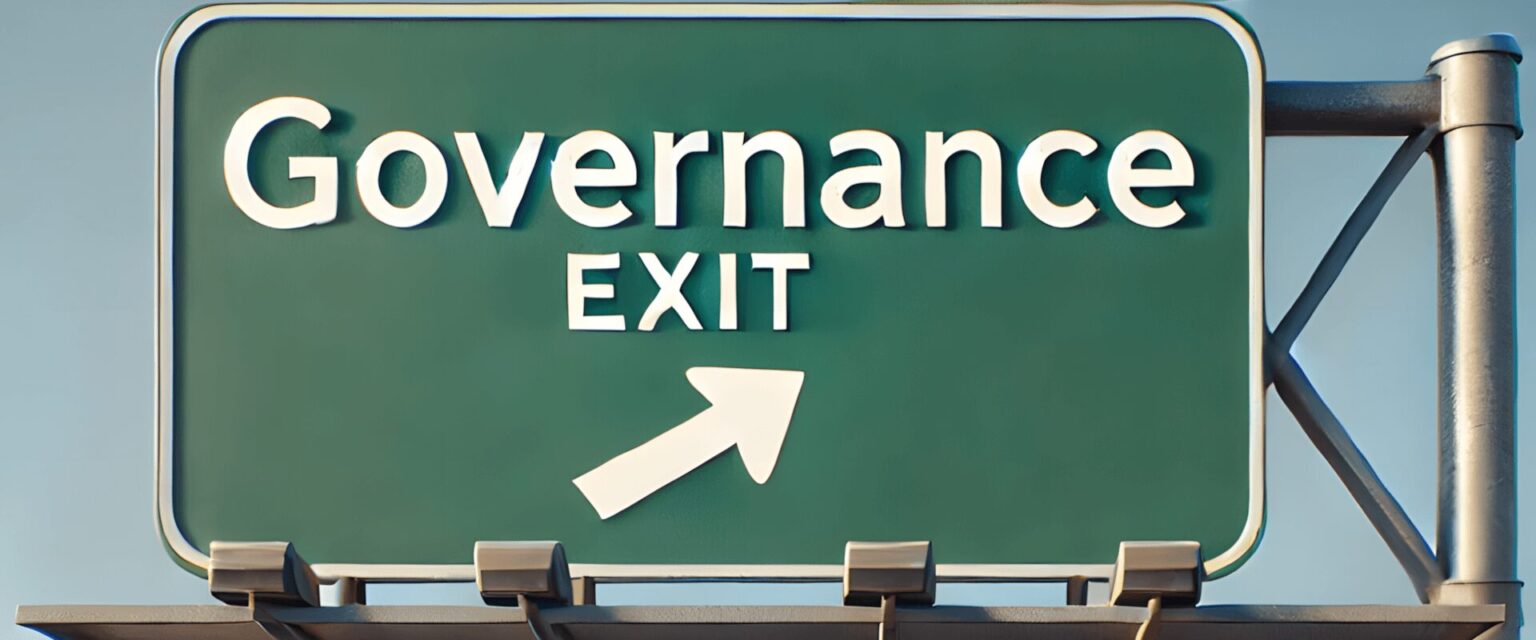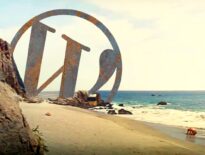Breaking the Status Quo is The Future of WordPress
By Brent Toderash
Published Post Date
≅4,074 Words on Post Terms
Abstract
In this article, I use Matt Mullenweg’s response to a recent article based on an interview he gave to Inc. as a framework to outline some of the reasons why the WordPress project needs a new governance model. I support recent calls for this change. In addition to other reasons I have outlined in related posts, I recap here Matt’s departure from FLOSS ideals, his misrepresentation of his motives in attacking WP Engine, and in attempts to then cast himself as the victim. I then briefly discuss how the increasingly chaotic atmosphere in the community increases what is already an inherently unacceptable level of risk to the WordPress supply chain.
Prologue
“What’s past is prologue.”1 There’s so much happening in the WordPress space that it’s hard to keep up, and after a brief reprieve, it’s been a busy week in Matt Mullenweg’s path of disruption, culminating in long-time tech journalist Kara Swisher calling him “a stone cold asshole.” I’ve had three posts ready to publish this week on the future of WordPress, and while the amount of breaking information might seem to make them outdated, I’m pleased to find they all hold up well, and in fact anticipate the events that have now unfolded and are continuing to do so. The first of the three was “Breaking the Status Quo: A New Roadmap“, about what I see as a positive technical/product direction for WordPress, followed yesterday by “Breaking the Status Quo: How it Came to This“. In that post, I outline some indicators going back a decade or more that have put us on a trajectory that was somewhat inevitable without the necessary mechanisms to correct it. Those posts are not necessary to understand the context for this one, but form the background to the conclusions reached here. I haven’t edited my draft of post for publishing other than to add this preamble before publishing: the events of this week have only served to confirm what I’ve said. Past is prologue.
Feet of Clay
In literature, an account from about 2,500 years ago tells how the Jewish prophet Daniel interprets a dream for the Babylonian King Nebuchadnezzar. In it, he explains the significance of a statue in the dream having a head made of gold, but being made of less valuable metals below it, until its feet are just clay mixed with iron.2 Two and a half millennia later, the “feet of clay” image is used refer to a character flaw or weak foundation. Over the past three months, the WordPress community has had a good hard look at Matt Mullenweg’s feet, and the foundation he’s established — and it’s not looking good.
It’s become hard to point to a single reason and tedious to start itemizing misdemeanors. After reviewing how we got to this point, and considering proposals for a new roadmap,3 I cannot endorse heartily enough the direction Joost de Valk and Karim Marucchi are proposing. It’s something I’ve been expecting and waiting to see for a long time now… but I believe it’s arrived right on time.
Community Rumblings
A few weeks ago when WP Engine had just won injunctive relief in their lawsuit against Mullenweg & Co.,4 when The Repository posted an open letter to the WordPress community from “long-time core committers and community leaders.”5 A month earlier, another story described a “Culture of Fear” created by Mullenweg within the community,6 with people fearing retribution from Mullenweg that could cost them jobs and livelihoods. The story also named several well-known contributors who have cut back contributions or stepped away from the project — some of whom did so involuntarily after being blocked or having account credentials removed.
“He Doth Protest Too Much”

On December 19th, Inc. posted an interview with Matt under the headline “Is Matt Mullenweg the Mad King of WordPress?“7 Matt responded, calling it a “hit piece.” To be fair, Roger Montti also found it biased,8 and he’s probably right. Still, I found Matt’s statements in and reaction to Inc Magazine‘s piece to be illustrative of most of the issues that have come up in the past three months, revealing a lot about where his mind has been.
We’ve gone from “Culture of Fear” to “Open Letter” to “Hit Piece” to “Breaking the Status Quo”
Shifting Away From FLOSS Ideals
It’s a classic gripe in the open-source world, known as the maker-taker problem. Companies that profit from an open-source project are expected to help maintain and improve it, but there’s no good mechanism for forcing them to do so. In fact, Mullenweg himself has in the past noted that it’s against the spirit of open source to demand contributions; chipping in should be offered, not required. “It works best when there’s no expectations,” he told the Harvard Business Review in 2015.9
Forcing people to contribute is anti-freedom. Open Source intentionally lacks a mechanism for doing so.
I have disputed the “maker-taker”, or free rider problem’s applicability to open source, and the issue here is Matt building on it (and the discredited tragedy of the commons) to say that open source has “no good mechanism for forcing” companies to contribute. But with FLOSS, that’s intentional: forcing people to contribute is anti-freedom, as the freedom to contribute can’t exist apart from the freedom not to. This statement is a change in position away from classic FLOSS ideals, which do not consider this a weakness, but a strength: you can’t be forced to contribute.
Matt further states that open source can be “profoundly capitalistic.” But while open source strategies may be found in capitalistic ventures, it’s really not something you find embedded in the FOSS ethos. “Profoundly Capitalistic” suggests a laissez-faire or unbridled form of capitalism,10 which is specifically not something you find in a healthy FOSS ecosystem. Where significant amounts of revenue are found in an open source ecosystem, it is more often a by-product within the economy surrounding the open source project than a fundamental motivation found within it. When the two become mixed, one can usually find conflicts of interest or undue corporate influence on the project.
Motivation Obfuscation
The public record reveals Matt’s deliberate misrepresentation of his motives in attacking WP Engine.
In response to Inc. saying,
WP Engine had royally pissed off Matt Mullenweg for not contributing enough to the open-source community, in his opinion. Mullenweg claims he had been in negotiations with WP Engine for months to get it to cough up its fair share one way or another
No, the negotiations, and what they were doing wrong, was abuse of the WordPress and WooCommerce trademarks. …our negotiations were about trademark use.
The problem here is the public record that reveals a deliberate misrepresentation of his motives. Just days after WCUS 2024, Matt did an extensive interview with Theo Browne.11 In the interview, Matt goes from saying Five for the Future is inspirational rather than a requirement to then calling contributions a moral issue12 to confirming that he was using trademark law to confront WP Engine’s “bad behaviour” and press them to “give back”, referring to Al Capone going to jail for tax evasion rather than for crimes for which they were unable to prosecute him. Later in the interview, he accuses WP Engine of taking his “life’s work” and “screw[ing] up our community.” He plainly affirms his objective.
I hope to do more of these in the future. Would I like to do more of these? Absolutely.
Matt Mullenweg
Theo: You brought up Al Capone as an example, where they went after him for tax laws, even though that was not the thing that was most problematic that he did. And I think that’s a very important example to illustrate that this is in some amount a retaliatory effort that the goal here is to make them in your minds, a better contributor to the WordPress ecosystem.
Matt: I have tried for many years the carrots. Yes. I am now trying a stick that is fair to say. Yes.
You can hardly come away from that interview thinking that Matt isn’t offended by the amount of revenue WP Engine is collecting compared his measure of their contributions, or that he isn’t using trademark law to force an increase to those contributions. Referring to a trademark license granted to Newfold Digital, he says, “So there are precedents for this in the market and I hope to do more of these in the future.” He immediately doubles down with, “Would I like to do more of these? Absolutely. Use it to fund more WordPress.”13 Matt admits to looking at WP Engine’s revenue and market share and weighing what he feels they contribute against what he estimates they can afford to, with no attempt at establishing value provided in the use of the trademark. Citing an interview Matt did with TechCrunch, in the November 26, 2024 preliminary injunction hearing, WP Engine attorney Rachel Kasabian refers to how Matt set his 8% gross revenue demand:
That’s not how you calculate a royalty. That’s how you set a ransom.
Rachel Kasabian
And when asked, how did you set that price? Mr. Mullenweg, defendant Matthew Mullenweg, acknowledged, “it’s what I thought they could pay. We did an analysis to figure out what the free cash flow was. That’s how we set that number.” That’s not how you calculate a royalty. That’s how you set a ransom.”14
Matt has been accused of gaslighting the community over these types of misleading statements. He’s clearly on record saying he is using trademark law to generate revenue for WordPress development, and warned that he wants to do more of this. The mechanism is ostensibly a royalty payment to Automattic, which will use the funds to hire more developers to work on WordPress — this is an issue in itself, as Automattic already effectively controls the direction of the project.
Miscasting the Victim
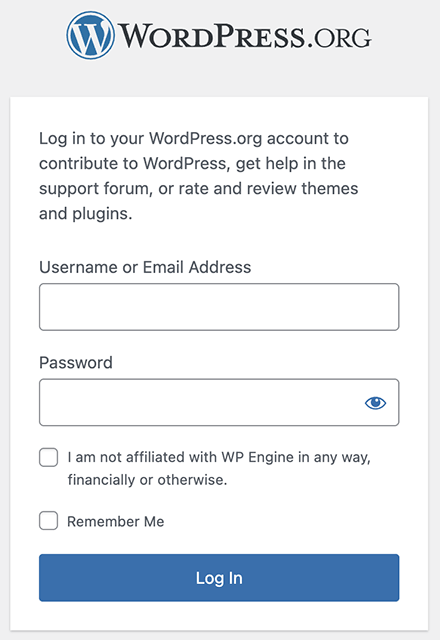
Matt casts himself as the victim of a “hit piece”, but on balance, if Inc. made Matt look bad they did it without misrepresenting him, while his responses do misrepresent what he’s said before. He then tosses out the logical fallacy that he’s right about WPE because he was right about Thesis. Bringing up Thesis in any context makes him look bad, but that’s on him. The Thesis controversy was over the GPL, with no similarity to the WPE situation other than the ruthlessness vindictiveness of Matt’s tactics for getting what he wants. Matt called Inc.‘s piece biased, and whether it is or not is probably moot in a world where Matt has effectively demanded everyone take a side. Almost everyone values loyalty, but Matt seems to place a higher value on fealty. Besides complaining about the photos used in the article, he correctly points out some factual errors in Inc.‘s reporting (later corrected) but the general commentary all fell in the “not wrong” space and unaffected by the factual errors, which tended to be statistical, not required to make the point, and not any kind of attack. Calling out the errors amounted to an unsuccessful smokescreen.
Matt has tried unsuccessfully to play the victim through the whole affair, even after his attempts to extort both WP Engine and Heather Brunner.15 He compares WP Engine to a schoolyard bully and accuses Heather Brunner of duplicity and corporate espionage complaining about WP Engine’s lawyers “cherry-picking” texts as though it somehow changes the content of the damning messages,16 and falsely claimed WP Engine was taking his life’s work17 and going on to complain that his freedom of speech was being curtailed (it wasn’t) and that he’s being forced to provide free service to WP Engine, citing the total cost of running his personal .org website rather than the incremental cost of serving the clients of an additional web host. In fact, the infrastructure is provided by Automattic, with which Matt is personally identifying himself.18
Matt has tried unsuccessfully to play the victim through the whole affair.
Matt portrays the whole fiasco as an inevitability, essentially suggesting “this wouldn’t have happened if you had only…” when in fact, the “this” in question were Matt’s actions, taken at his sole discretion, with nothing inevitable about his choices. Having started the whole matter with an extortive attempt at rent-seeking and launching his nuclear campaign of tortuous interference to punish WP Engine for declining to simply hand over millions of dollars for something whose value or necessity has not been established. Matt repeatedly refers to WP Engine’s response as “attacks” against him, when the reality is they’re simply attempting to limit the damage from Matt’s campaign against them. It’s got all the credibility of “Well, it all started when he hit me back.”19
Overestimating His Stature

In the Inc. piece, Matt said he preferred the term “enlightened leader” over “dictator” in the BDFL title. It seems to me that ”’enlightened leader” is a more arrogant self-descriptor than “BDFL”, so this is not an improvement. It’d be fair to say that Matt’s track record includes a lot of things generally considered neither benevolent nor enlightened. In September at the WCUS 2024 Q&A, Matt claimed to have a “background in macroeconomics”20 and casually dismissed the work of a Nobel Laureate when it ran counter to the economic argument he was making about the tragedy of the commons, talking over and dismissing points being made from the floor. In December, he was generally dismissive of the open letter to the community, reflecting an ongoing cavalier attitude toward any call for changes to governance or technical direction of the project and over-portraying any support he has for the actions he’s taken. Several times, Matt has described himself as “post-economic”, which tends to elicit a kind of, “Well, bully for you then!” response from those who still have to work for a living. It’s likely fair to assume that Matt was in the 1% or the 0.1% of wealthiest people in the room at his WCUS talk, while everyone else was “worried for their livelihoods.” To most, Matt’s self-descriptors simply sound arrogant.
Turning Point
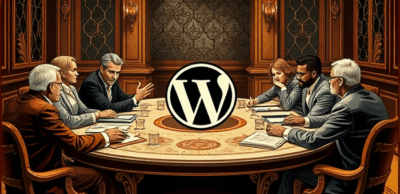
I’ve said many times over the past dozen weeks or so that if Matt was open to governance reform, we’d have had it long ago. Instead, he’s consistently resisted those calls, with prominent community members having left in the past as a result. He refused to support (and largely ignored) the WordPress Governance Project in 2019 and gave much the same treatment to the open letter of December 2024. His comment on Joost’s call for new project governance was clear that he won’t participate in that sort of change. Together with his denial to share use of the WordPress trademark, the code must now be forked and renamed, or there’s effectively nothing to apply new governance to. Governance is the key, and if a fork is needed in order to achieve that end, then so be it.
Past attempts at governance reform have not been able to pull the trigger on a fork, and Matt has continued to count on this. Successfully forking WordPress requires community support — essentially you have to fork the community to fork the code. While it sounds harsh, the reality is that it’s already happened. The community is not united, and there’s a large cry for breaking the status quo that includes many well-known core contributors and community volunteers. This is the first time in the past 20 years that conditions exist for this to happen in a meaningful way. Something else I’ve been saying over the past dozen weeks is that Matt has lost the community. Based on his public statements, he seems to either not know this or not be concerned about it.
Status Quo is an Unacceptable Risk
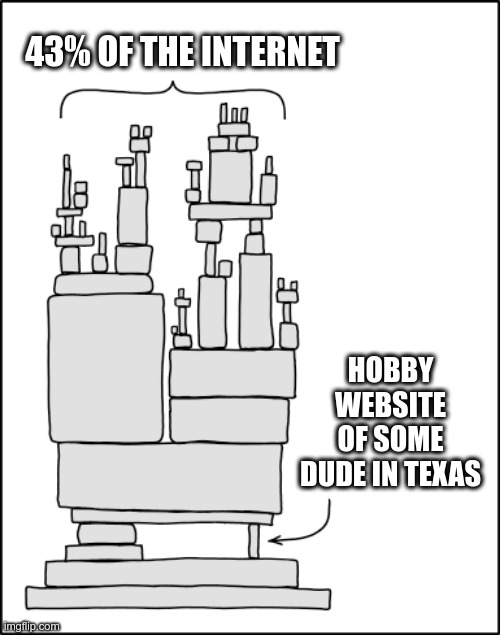
An XKCD comic titled “Dependency” became a meme depicting a lot of platform infrastructure relying upon a single component with a single obscure maintainer. This was quickly modified to depict every WordPress website’s reliance upon wordpress.org.21 It’s a sad or cynical comment on how so much can be built upon a single piece of infrastructure — a single point of failure — controlled by one person. It’s unfortunate how easily this can happen. If you look at it another way, it’s a damning indictment against someone who not only knew this was the case, but designed it this way as a requirement and made efforts to ensure it stayed this way. It might be called engineering malpractice — unless it’s exactly what was intended, in which case it’s an extreme consolidation of power.
In another instance of miscasting his actions as inevitabilities for which he wasn’t directly responsible, when WP Engine’s access to wordpress.org was blocked, in court filings Matt placed the blame on them for having built their business on the assumption that he would continue providing access to wordpress.org.22 It calls to mind how Lucy continually yanks away the football that Charlie Brown attempts to kick. Chuck may be too trusting, but Lucy’s clearly the one to blame for him landing on his back each time, with his naïveté only adding to her delight.
In early October, I wrote in a document shared privately to explain some risk management strategies for the road ahead,
The WordPress community is now a community divided by the actions of its leader, Matt Mullenweg… over the space of just a couple of weeks the community discovered that their leader has no genuine oversight, operates a monopoly at the center of the software’s distribution system, and acts as the sole gatekeeper.
“Just me.”
Matt Mullenweg23
At the time, Matt had just done an interview with The Verge24 revealing that wordpress.org belongs solely to him, and not to the WordPress Foundation. A lot of this was known, but not widely, as most were under the impression that the WordPress Foundation held the assets and oversaw what turned out to be under Matt’s sole ownership and direction. Until recently, Matt had never said or done anything to correct this misconception.25 WordPress has a BDFL26 model of governance and a single point of failure in its supply chain, which is controlled by a BDFL whose objectivity and benevolence have been called into question.
Historically within the WordPress community, the probability of these becoming issues has seemed relatively low, but the past three months have revealed some unexpected (by most) behaviour that includes blocking, banning, and revoking user credentials by Matt based on disagreement with him.27 This change in probability28 necessitates immediate action to employ risk reduction strategies by and for the entire community, as any continued loss or failure of benevolence becomes a new form of risk. In light of Matt’s stated desire to do more of what he’s done with Newfold and attempted with WP Engine and the atmosphere of uncertainty created by the current lawsuit(s), a large percentage of the community needs to deal with the reality of an unstable environment.
Toward a New Governance Model
People are looking to the leader of a rival project and expecting he would be more receptive and provide better guidance than our own project’s leader. Let that one sink in.
Many people have suggested reaching out to Drupal leader Dries Buytaert for guidance in establishing proper governance for WordPress. I haven’t followed Dries all that closely, but after some catch-up reading, I believe he’d be quite open and helpful here. The bigger realization at this point should be the fact that a good number of people are looking to the leader of a rival project and expecting (rightly, I believe) he would be more receptive and provide better guidance than our own project’s leader. Let that one sink in.
Not that Dries shouldn’t be consulted, but I strongly favour Karim’s suggestion to approach the Linux Foundation or the Apache Foundation. Both have a long history of not only running their own successful FLOSS project, but of also helping others do the same, having expanded their mandate and developed specific resources for doing so. I particularly appreciate the Linux Foundation’s work in this area. With WordPress running on 43%+ of all websites and in the midst of a major public crisis, I see them as best-suited to assist, and able to understand not just the issues involved in finding a way forward, but also to navigate the changes required with as big a user base as WordPress has.29 Either foundation can provide valuable guidance based on experience at a larger scale over a longer history than WordPress has, and given the stakes for WordPress and the web, I expect the request would be met with eagerness to help. Both offer platform tools, with the Linux Foundation having developed the extensive LFX Platform to help projects scale.
The Road Ahead
What does 2025 hold for WordPress and its community?
At the beginning of October as the controversy was starting to hit mainstream media, I wrote a note addressing our clients30 to suggest what 2025 was likely to hold for WordPress. At the same time, I wanted to offer some assurance for my reasoning for why we were not then rescinding our recommendation of the platform.
Mullenweg has harmed his community, but communities tend to rally in times of stress or hardship. The people I’ve met or follow in the WordPress community today include a set of principled and highly capable individuals whom I believe will be able to help the community heal, improve, and thrive. The next year or so may see some uncertainty surrounding WordPress, but I expect the software it is today will continue to be the core of whatever we’re using in the future, by any name it may then have.
This is why, based solidly on the four freedoms of the GPL and the resilience of the WordPress community, we are not rescinding our recommendation of its use, nor making plans to change.
In the proposal made by Joost de Valk and affirmed by Karim Marucchi, I see the natural outworking of a resilient community taking necessary steps, however difficult, in order to reduce risk and secure its ability to build a stable, vibrant future.
In the proposal made by Joost de Valk, I see the natural outworking of a resilient community taking necessary steps to reduce risk and secure its ability to build a stable, vibrant future.
What has unfolded in the past three months and what’s about to take place through 2025 are not unforeseen or unexpected. In departing from open source ideals and preferring his corporate needs over the community’s needs, Matt set the course long ago for what we saw in the kickoff of his self-described “nuclear war” against WP Engine. His fixation on market share reveals the widening gap between his needs and the community’s needs, while the pursuit of a larger development team is an ill-conceived solution.31 Both are only made worse by the behaviour he’s exhibited in pursuit of these goals.
Back in early October 2024, Juan Gonzales posted that WordPress [was] entering its “end-stage founder” period32 Gonzales makes a career of helping founders exit the companies they’ve founded. In his view, the current issues are symptomatic, and right on schedule. Stating that the founder needs to exit in order for an organization to continue scaling, his prescription is to “step the founder back” and reinvent, as the founder’s vision has “met its logical end.” This is a helpful perspective from outside of the FLOSS world, seeing things as simply simply having run their course. Given the context, it might seem to be more applicable to Matt’s leadership of Automattic, but I don’t think so: I think he’s still got a vision and a reasonable strategy for Automattic — it just diverges from the path that the non-commercial WordPress project needs to take for the best interests of its community. While he may be viewed as a strong CEO, he still risks the consequences of when founders go too far,33 or he might if he didn’t enjoy the impunity that comes with voting 84% of Automattic’s shares.
Governance is the crux of the matter: it’s the status quo that needs to break. Anything that needs breaking to establish governance is part of the status quo that needs to go.
The status quo will not sustain us into the future. While there are some technical challenges ahead, it’s governance that is the crux of the matter. Governance is the status quo that has to change — and whatever else needs breaking in order to support that change needs to be broken. There are many reasons to support the need to break the status quo, and I believe they vastly outnumber those for maintaining it. I’ve suggested some that I find influential, but there are others, like the ineffectual 2010 transfer of the WordPress trademark from Automattic to the WordPress Foundation or sustained resistance to governance reform. I’ve found the reasons for supporting the status quo to be wanting, mostly (imo) reflecting some degree of naiveté, wishful thinking, or avoidance of the unknown that change inherently entails. The uncertainty of the status quo is the greater risk facing the WordPress project, and represents the true “existential threat.” I therefore cannot endorse heartily enough the direction Joost de Valk and Karim Marucchi are proposing — the risk of doing nothing is simply too high.
We need this. The web needs this.
We need this. The web needs this.
Where do You Share?
Notes
[footnotes_block]Related Posts
- Why Unmasking The Tragedy of the Commons Matters
- Breaking the Status Quo: A New Roadmap
- Breaking the Status Quo: How it Came to this
- Breaking the Status Quo is the Future of WordPress (This Post)
Notes
- William Shakespeare, The Tempest
- See Daniel 2:27-44. I’m only referring to the “feet of clay” metaphor here, and not anything else that might be read into it.
- I see the course that got us here as starting in September 2014, detonating in September 2024, and leaving everyone considering the fallout for the three months between then and now.
- That is to say, Automattic Inc. and Matt Mullenweg personally, along with his personal website wordpress.org, and Audrey Capital. Together with the WordPress Foundation, the lines between them are very blurry, to the point where some are speculating that the pending legal dispute will pierce the corporate veil.
- Rae Morey, “WordPress Contributors and Community Leaders Call for Governance Reform in Rare Open Letter“, The Repository, December 13, 2024. Perhaps unusual for an open letter, the names of the original signatories were not released for fear of reprisals from Matt. Identities of all 20 signatories were verified as “senior and influential figures across the WordPress project and the community”, and of the people who I know to have signed it, a few have spoken in private channels to verify that strict anonymity was crucial for several of the signatories.
- Rae Morey, “Culture of Fear” in WordPress Community“, The Repository, November 8, 2024. Also see Alda Vigdis, “My strange experiences with Automattic: Part 3“, September 30, 2024. There are others.
- Doug Freedman, “Is Matt Mullenweg the Mad King of WordPress?“, Inc., December 19, 2024. The piece was based on an interview from late October, its title recalling a post by David Heinemeir Hansson (“DHH”), “Open source royalty and mad kings“, posted October 13, 2024. With a plea to Matt to not become a mad king, DHH observed, “Not since the SCO-Linux nonsense of the early 2000s have we faced such a potential explosion in fear, doubt, and uncertainty in the open source realm on basic matters everyone thought they could take for granted.”
- Roger Montti, “Mullenweg Takes On Inc Magazine For ‘“‘Biased’ Interview,” Search Engine Journal, December 20, 2024.
- Freedman, Inc., op. cit.
- I’ve explored in more depth how this form of capitalism has a flawed foundation even apart from open source.
- September 29, 2024. The interview was cited in WP Engine’s lawsuit against Matt & Co., with a transcript supplied. Theo did an excellent interview, giving Matt some “push-back” that was largely absent from most other interviews in those first couple of weeks.
- It would actually be an ethical issue rather than a moral one.
- See “Exhibit 4: Transcript of Audio-Visual Recordings of Defendant Matthew Charles Mullenweg Interview with YouTube Channel ‘Theo — T.3.GG‘” pages 12-14, 19, & 29 or YouTube video excerpts starting at 27:50, 47:05, & 1:08:30.
- Quoted in Roger Montti, “WP Engine Vs Automattic: Judge Inclined To Grant Preliminary Injunction“, Search Engine Journal, November 27, 2024 (and elsewhere).
- It’s safe to say that even if this charge fails to meet a legal standard, Matt’s behaviour is widely seen as extortive in its nature and intent.
- He cites the numerous texts that were cordial or innocuous as evidence. At the time, I said it was like trying to defend a murder charge by pointing out all the bullets you didn’t fire from the gun. Despite being the aggressor, Matt is trying to paint himself as the “good guy.”
- It’s licensed under the GPL, and with open source software having a distribution cost of basically nil, nobody has “taken” anything that wasn’t already given.
- He commonly does this; while his personal ownership stake is smaller, he votes 84% of the shares through proxy agreements which ensure he can effectively exercise complete control of the enterprise.
- In another context, Matt’s actions and statements would be classified as abusive behaviour within a relationship, blaming the victim for the actions of the aggressor in a “look what you made me do” kind of blame-shifting accusation.
- This is an attempt to support his position through the logical fallacy of appealing to an authority, where he claims to be the authority. He’s made this claim a number times without offering any explanation of what this “background” consists of or when he acquired it between dropping out of university to work for a year at CNet before leaving to work on WordPress full-time with Automattic.
- My own nuanced version of the XKCD comic is shown.
- This presumption has been made universally within the WordPress ecosystem. It is a stated policy that software updates must come from wordpress.org, and the URL for its API is hard-coded some 1,500 times in WordPress Core, so it would seem that Matt not only encouraged this situation, he actively required it. Some form of class action lawsuit would not be unexpected at this point.
- Matt Mullenweg, answering who ownes wordpress.org for The Verge.
- Emma Roth, “Matt Mullenweg: ‘WordPress.org just belongs to me’“, October 4, 2024.
- This was the point at which I became involved with AspirePress, a project to build an alternative software repository that would be distributed and federated in a manner that prevents it from being controlled by a single individual. This is a risk mitigation strategy that the entire WordPress community needs, whether or not they’re aware of it.
- “Benevolent Dictator for Life,” a term first applied jokingly to Guido Van Rossum, creator of Python. The term extends “benevolent dictator”, introduced by Eric Raymond in his 1999 essay, “Homesteading the Noosphere“
- Fealty over loyalty, as block/ban-worthy “transgressions” have been as petty as for simply reacting to one of Matt’s posts with a clown emoji.
- Used here as a technical term; you could insert “odds” or “chances” here; it’s not intended to imply anything about what will probably happen. We can say simply that the possibility now should be viewed as greater than it was before.
- To be clear, I’m talking about the establishment of an appropriate governance model and structure; the technical direction still falls to the community under whatever model is adopted. Regarding the profile of the projects these organizations are experienced with, some numbers: Apache still holds 27.5% of its market, second to Nginx’s 33.9% (likely about to fracture due to forking). In 2014, Apache’s market share peaked at 64.8%. Linux is now running on 62.7% of all sites running some version of Unix, which is 88.1% of the web. Linux therefore runs on 55.2% of all sites. The Linux Foundation deals with about 900 open source projects, including several upon which WordPress relies.
- Brent Toderash, “Storms of WordPress Controversy“, October 4, 2024.
- See Brooks’ Law, that adding resources to a late project tends to make it later. Here I’m implying that Matt needs Gutenberg development to proceed more quickly.
- Juan Gonzales, “WordPress is entering its “end-stage founder” period“, October 6, 2024; also posted on Twitter and elsewhere.
- Steve Blank, “When founders go too far” (“Some start-up CEOs have too much power. Here’s what to do about it.”) Harvard Business Review, November 2017. The article considers the ousting of Uber’s CEO and cofounder, Travis Kalanick in June 2017.

